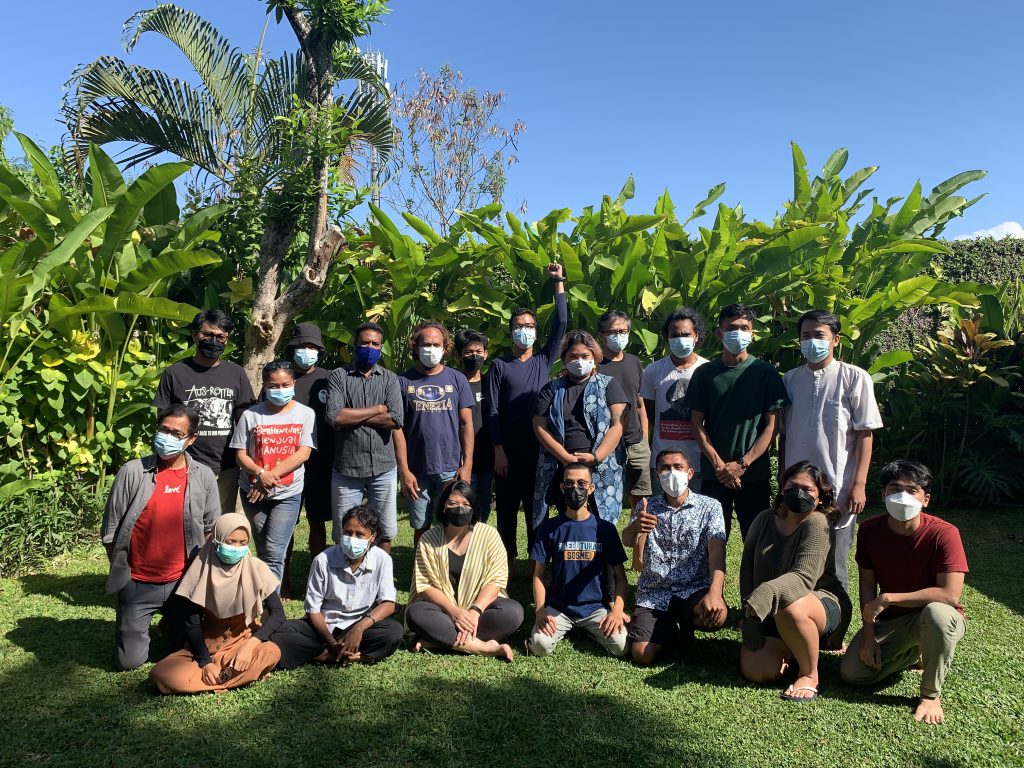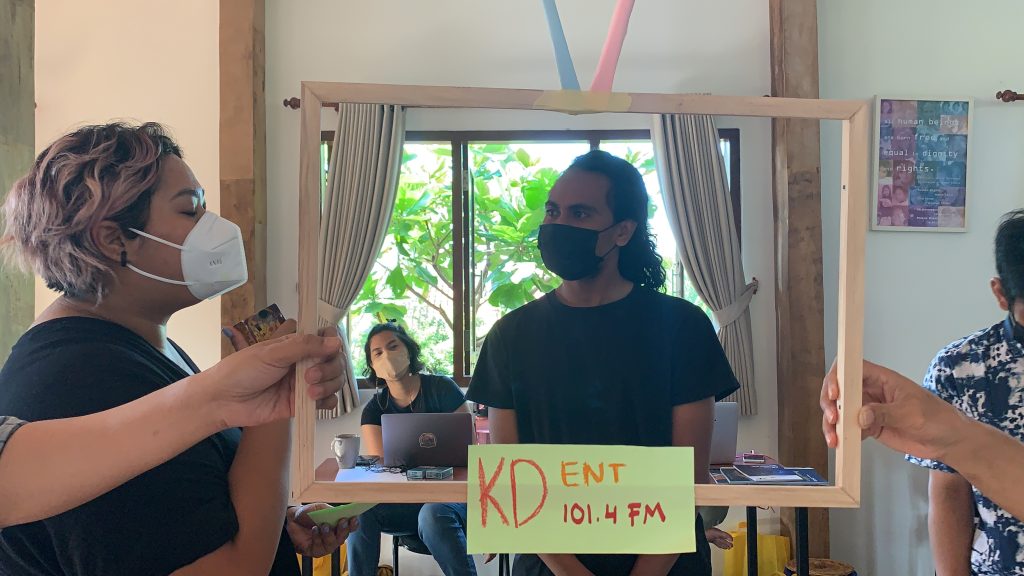Learning from the Past, for Sustainable Peace and Democracy in Indonesia
“Menjadi pembela HAM tidak perlu jauh-jauh ke tanah konflik yang besar, tetapi sesederhana menyadari permasalahan yang ada di sekitar kita. Permasalahan kecil yang terkadang tidak dianggap atau dilihat sebagai pelanggaran HAM misalnya, jalan yang rusak sehingga mengancam keselamatan yang merupakan bagian dari hak kita.”
Sartika Saka, Fasilitator Muda dari Sulawesi Selatan
“Becoming a human rights defender does not necessarily mean you have to be in the conflict-affected areas, but it is as simple as being aware of the problems around us—small problems that are sometimes disregarded as human rights violations. For example, the damaged roads that threaten our safety—supposedly, the rights to be safe is integral to our being”
Sartika Saka, Young Facilitator from South Sulawesi
Through the “Learning from the Past, for Sustainable Peace and Democracy in Indonesia” program supported by The United Nations Democracy Funds (UNDEF), AJAR has conducted a ten-month long series of training with our local partners throughout Indonesia. With this training, hopefully, the future without impunity is no longer a wishful dream–as now we have 72 young people who are part of the human rights movement across Indonesia as the participants in our training. The training brings them closer to the survivors and enriches them with the knowledge of the cause that they defend.
AJAR and partners conducted three training series for the young human rights defenders starting from September 2021 until early 2022. The first training was held in Bali;,East Nusa Tenggara with CIS TIMOR and JPIT; South Sulawesi with KontraS Sulawesi; Central Sulawesi with SKP-HAM SULTENG; and also Yogyakarta with FOPPERHAM. In the first training, we equipped the 13 participants with the skill to conduct social analysis, organise the community, and carry out advocacy work.
From November until December 2021, we organised the second training by bringing together the previously trained human rights defenders as the training facilitator in their respective regions. The human rights defenders—now also the training facilitators—shared their knowledge with 59 youth participants. The training conducted by the South Sulawesi group and Central Sulawesi group chose to carry out joint activities in Poso, where they lived and worked with survivors of past conflicts: Indonesia’s occupation in East Timor and child abductions—or better known as the stolen children—and the communal conflict in Poso. In East Nusa Tenggara, the participants are a group of youth who used to live in the East-Timor refugee camps and a group of youth from various districts with a high number of human trafficking cases. Meanwhile, the group in Yogyakarta worked with the 1965 anti-communist purges survivors in documenting the atrocities and the cycle of impunity that the survivors need to endure.
From February until April 2022, we conducted the third training where its purpose was to deepen their knowledge on conducting social analysis research for the identified conflicts in their respective communities. After the training, we invited the participants to visit and engage with the survivors of the past human rights violations—to talk, understand, and to bridge the generational gap between the survivors and the young human rights defenders. By doing the visit, the young human rights defenders—along with the survivors—mapped out the national context of the conflict, the root causes, and why impunity still persists today.
This initial training for the young human rights defenders inspired many to become facilitators. As a result, the young human rights defenders we facilitated in the early stages of the project to date have a thorough understanding of the context and root causes of past human rights violations. They are also equipped with the skills to conduct social analysis and advocacy work for the long-term human rights movement. The human rights defenders then formed learning circles in their respective regions and used it as the medium to raise awareness by holding monthly discussions. The series of training also ensures the young human rights defenders establish a genuine relationship based on trust with the survivors—where they now hold regular meetings with the survivors.
Intergenerational learning has become the lifeblood of this program. The spirit of learning, both from the survivors and the young human rights defenders unites them to take a step forward towards a future without impunity—a guarantee to stop the injustice and cycle of violence of the past human rights violations in the present time. This project is also to ensure the young human rights defenders can amplify the voice of survivors about the truth and to continue nourishing the democracy in Indonesia.

